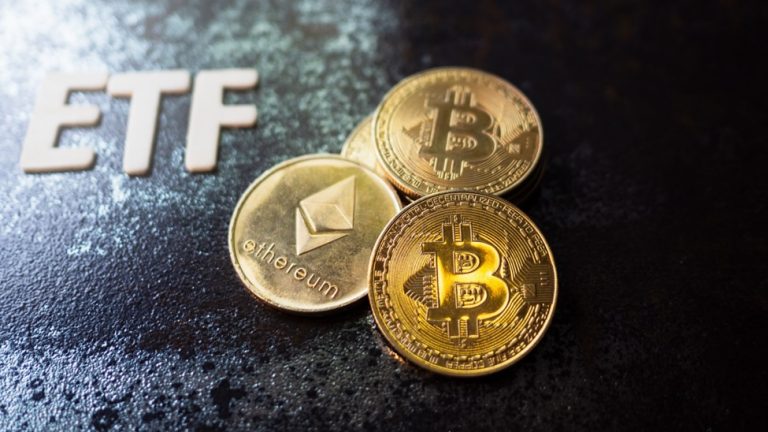
Bloomberg ETF analysts Eric Balchunas and James Seyffart have recently updated their approval odds for various spot crypto ETFs, focusing on altcoins like XRP, Solana, Litecoin, and Dogecoin. As of April 30, 2025, their latest estimates.
XRP ETF: 85% chance of approval in 2025, up from 65% in February, driven by multiple filings from asset managers like Grayscale, Bitwise, and WisdomTree, though the SEC has not yet acknowledged 19b-4 filings.
Solana ETF: 90% approval odds, increased from 70%, supported by institutional interest and filings from firms like VanEck and 21Shares, with a potential timeline extending to 2026 due to SEC review processes.
Register for Tekedia Mini-MBA edition 19 (Feb 9 – May 2, 2026).
Register for Tekedia AI in Business Masterclass.
Join Tekedia Capital Syndicate and co-invest in great global startups.
Register for Tekedia AI Lab.
Litecoin ETF: 90% approval odds, the highest among altcoins, bolstered by the CFTC’s classification of Litecoin as a commodity and SEC acknowledgment of 19b-4 filings.
Dogecoin ETF: 80% approval odds, up from 75%, despite the SEC not yet acknowledging 19b-4 filings, with the asset viewed as a commodity. Other ETFs (e.g., Hedera, Avalanche, Polkadot): Approval odds range from 75% to 80%, with decisions expected between Q3 and Q4 2025.
These estimates reflect a more favorable regulatory outlook, influenced by legal developments, bipartisan crypto support, and market momentum. However, the SEC’s final decisions hinge on factors like market manipulation concerns and the resolution of security vs. commodity classifications, expected by late 2025.
Bloomberg analysts previously raised Bitcoin ETF approval odds to 95% by January 2024 (achieved) and Ethereum ETF odds to 75% in May 2024, reflecting their track record of adjusting predictions based on regulatory shifts. Always cross-check with primary sources like SEC filings or platforms like Polymarket for market sentiment, as analyst predictions aren’t definitive.
Approval of these ETFs, particularly for altcoins like XRP (85% odds), Solana (90%), Litecoin (90%), and Dogecoin (80%), could drive substantial price increases due to increased institutional investment and retail FOMO. For example, Bitcoin surged 60% post-ETF approval in 2024, and Ethereum gained 30% after its ETF launch.
ETFs signal regulatory acceptance, potentially reducing volatility and attracting conservative investors, further integrating crypto into traditional finance. ETFs would enhance liquidity for these altcoins, narrowing bid-ask spreads and improving market efficiency, especially for smaller-cap assets like Dogecoin.
ETFs allow retail and institutional investors to gain exposure to altcoins without managing wallets or navigating exchanges, lowering barriers to entry. Investors can diversify beyond Bitcoin and Ethereum, potentially hedging against sector-specific risks while tapping into altcoin growth.
ETFs typically have lower fees than direct crypto purchases on exchanges, though expense ratios (e.g., 0.25%–0.65% for Bitcoin ETFs) should be monitored. Approvals would reinforce the CFTC’s commodity classification for these assets, reducing SEC scrutiny over security status and setting precedents for other altcoins (e.g., Hedera, Avalanche).
Asset managers like Grayscale, BlackRock, and VanEck filing for these ETFs signal confidence, likely spurring more institutional products (e.g., futures, staking ETFs). Increased capital inflows could fund blockchain development, particularly for Solana’s DeFi ecosystem or XRP’s cross-border payment solutions.
Despite high odds, SEC concerns over market manipulation or investor protection could delay approvals, especially for Dogecoin, where 19b-4 filings are unacknowledged. Speculative rallies post-approval may lead to corrections, as seen with Ethereum’s 15% dip weeks after its ETF launch in 2024. Heavy ETF inflows could centralize ownership, potentially impacting decentralized networks’ governance.
Approvals could trigger an “altcoin season,” where smaller cryptocurrencies outperform Bitcoin, shifting market dynamics. Projects without ETF prospects may struggle to attract capital, widening the gap between top altcoins and smaller tokens. U.S. ETF approvals could pressure other jurisdictions (e.g., EU, Asia) to fast-track similar products, accelerating global crypto adoption.
Investors should monitor SEC announcements, 19b-4 filing statuses, and Polymarket odds for real-time sentiment. Diversifying across ETF-eligible altcoins may mitigate risk, but beware of post-approval volatility. Long-term, approvals could solidify crypto’s role in portfolios, but short-term regulatory hiccups remain a wildcard. Always verify updates via primary sources like SEC.gov or asset managers’ filings.



